- Home
- / CL Answers
- / Do hair loss supplements, such as Viviscal, Hair La Vie, and Nutrafol, or topical essential oils work?
www.consumerlab.com/answers/do-any-supplements-help-for-hair-loss/hair-loss/
Save to favorites
This feature is restricted to active members.
Join now to save favorites and get all member benefits, including over 1,400 reviews.
Join NowAlready a member? Sign in here.

Our Members Asked:
Do hair loss supplements, such as Viviscal, Hair La Vie, and Nutrafol, or topical essential oils work?
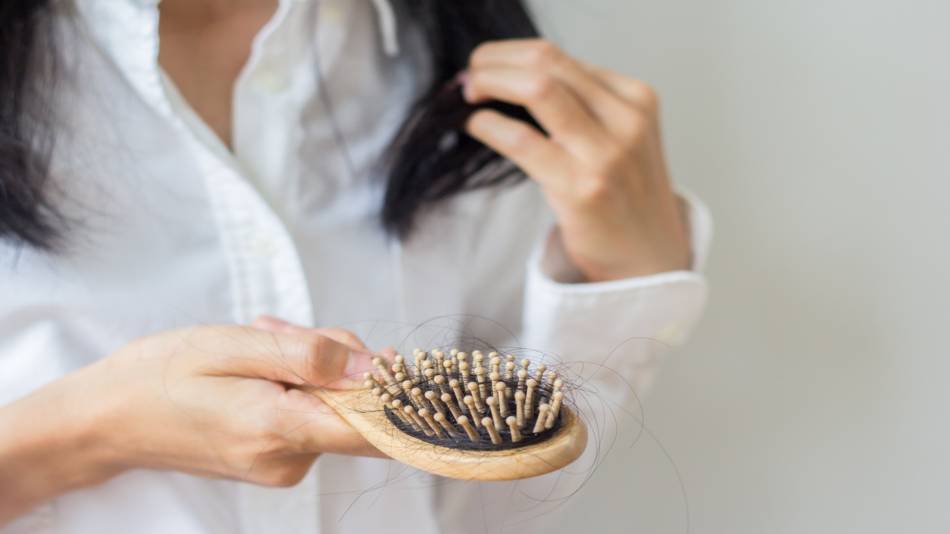
Answer:
Before discussing possible treatments for hair loss, be aware that there are some avoidable causes of hair loss.
Avoidable causes of hair loss:
Deficiencies in nutrients such as iron, zinc, biotin, riboflavin, vitamin D and protein can cause hair loss. Supplementing to offset these deficiencies may reverse this hair loss. However, supplementing with these nutrients is unlikely to benefit people who already get adequate amounts.
Possible treatments for hair loss:
Certain supplements — such as DHEA, selenium, St. John's wort, and vitamin A — as well as many drugs (including some blood pressure medications) can also cause hair loss. In some cases, discontinuing use of these agents can reverse hair loss.
Many supplement ingredients including acetyl-cysteine, amla (Emblica officinalis), beta-sitosterol, black currant seed oil, black seed oil, cysteine, gamma-linolenic acid (GLA), glycyrrhizin, Gynostemma pentaphyllum (also called jiaogulan), Korean red ginseng, pea sprout extract, pumpkin seed oil, saw palmetto, peony, and wheat polar-lipid complex (Ceramosides), as well as topical essential oils, aloe vera gel, castor oil, CBD, caffeine, chitosan, green tea, lavender oil, melatonin, onion juice, peppermint oil, poison primrose, rice water, rosemary oil, saw palmetto, and squill lotion are promoted for hair regrowth but have shown only modest benefits, at best, and the quality of the evidence is generally weak.
Similarly, there is little to no evidence to support the benefit of "hair formula" supplements, such as Forti5, Hair La Vie Clinical Formula, Lambdapil, Nourkrin, Nutrafol, and Viviscal (which includes marine protein) products, as well as hair loss shampoos such as Pura d'or Hair Thinning Therapy Shampoo or Nioxin shampoos.
There is preliminary evidence that taking a low dose of the drug minoxidil orally (as opposed to its approved, topical use, as in Rogaine) or dutasteride (which is used for treating benign prostatic hyperplasia) may help regrow thinning hair and may work better than low-dose finasteride (Propecia, which is approved for treating male-pattern baldness), although there are possible side effects with these drugs, and there is mixed evidence as to whether low-dose oral minoxidil is more effective than topical minoxidil. Be aware that women often pay more than men for topical minoxidil products, but there are ways to avoid this, as explained in our full article.
Sign in as a member to learn more, including our assessments of the following supplement formulas and shampoos promoted for hair growth:
- Armra Colostrum Immune Revival
- Cuticapil Stem Hair Serum
- Forti5
- Hair La Vie Clinical Formula
- Hair Strong Gummies
- Hårklinikken Hair Supplement and Hair Gain Extract
- Lambdapil Hair Density Capsules
- Nioxin
- NourishVita Hair, Lash & Brow Growth
- Nourkrin
- Nutrafol
- (plated) Hair Serum
- Pura d’or Hair Thinning Therapy Shampoo
- Vegamour GRO Hair Serum
- Viviscal
- WEEM Hair.Skin.Nails
Also find out if low-level light devices such as laser or LED caps and helmets (such as Capillus and Theradome) increase hair growth and are safe.
In addition the results of its expert testing, ConsumerLab uses only high-quality, evidence based, information sources. These sources include peer-reviewed studies and information from agencies such as the FDA and USDA, and the National Academy of Medicine. On evolving topics, studies from pre-print journals may be sourced. All of our content is reviewed by medical doctors and doctoral-level experts in pharmacology, toxicology, and chemistry. We continually update and medically review our information to keep our content trustworthy, accurate, and reliable. The following sources are referenced in this article:
- Ablon, Dermatol Res Pract 2015
- Ablon, J Clin Aesthet Dermatol 2012
- Ablon, J Clin Aesthet Dermatol 2015
- Ablon, J Cosmet Dermatol 2016
- Ablon, J Drugs Dermatol 2018
- Afifi, Lasers Surg Med 2017
- Akiska, JAMA Dermatol 2024
- Ambooken, Int J Trich 2013
- Ashar, Ann Intern Med 1996
- Avci, Lasers Surg Med 2013
- Azuma, Int J Biol Macromol 2019
- Bandaranayake, Cutis 2004
- Bhatia, J Cosmet Dermatol 2025
- BinJadeed, Cureus 2021
- Blume-Peytavi, J Am Acad Dermatol 2011
- Brinks, JAAD Case Reports 2025
- Bussoletti, G Ital Dermatol Venereol 2020
- Cho, Evid Based Complement Alternat Med 2014
- Dey, Med J Aust 2000
- Dhurat, J Cosmet Dermatol 2025
- Dhurat, Skin Pharmacol Physiol 2018
- Dlova, JAAD Case Rep 2022
- Dudonne, Int J Cosmet Sci 2023
- Dugal, Am J Gastroenterol 2024
- Dulal, Int J Pharm Sci 2014
- Epstein, Facial Plast Surg Clin North Am 2004
- Etminan, Int Clin Psychopharmacol 2018
- FDA, 12/7/2023
- Fathima, J Endocr Soc 2025
- Fischer, Br J Dermatol 2014
- Fischer, Int J Dermatol 2007
- Franca, JCDSA 2013
- Friedman, Dermatol Surg 2017
- Friedman, J Am Acad Dermatol 2002
- Frigo, BMC Cancer 2009
- Grothe, Phytother Res 2019
- Gupta, J Dermatolog Treat 2022
- Gupta, JAMA Dermatol 2022
- Güngör, Int J Trichology 2015
- Harries, Br J Dermatol 2024
- Hay, JAMA Dermatol 1998
- Herz-Ruelas, Skin Appendage Disord 2020
- Hossain, Am J Gastroenterol Suppl 2017
- Ibrahim, J Cosmet Dermatol 2021
- Inamasu, J Cosmetic Chemists 2010
- Jiang, J Ethnopharmacol 2020
- Jimenez-Cauhe, Dermatol Ther 2020
- Kaiser, Skin Appendage Disord 2023
- Kataria, J Pharm Pract 2017
- Kim, Exp Dermatol 2011
- Kim, Front Cell Dev Biol 2022
- Klncalp, Eur J Gastroenterol Hepatol 2012
- Kovale, Nutrients 2024
- Kwon, Phytomedicine 2007
- Lanjewar, J Drug Deliv Therapeut 2020
- Laser Safety Facts, Accessed 4/22/24
- Lassus, J Int Med Res 1992
- Lee, JAMA Dermatol 2018
- Lee, Nutrients 2025
- Lee, Toxicol Res 2016
- Lin, Life 2023
- Martin-Biggers, J Clin Aesthet Dermatol 2024
- Mattos, J Clin Investigat Dermatol 2020
- Milforoushzadeh, Cell J 2021
- Mitchell, ASDS Virtual Annual Meeting 2020
- Moosavi, Arch Dermatol Res 2020
- Moreno-Arrones, Actas Dermosifiliogr 2022
- Muhammud, Int J Ethics Eng Manag Educ 2014
- NLM, Drug Label Information for 5% Minoxidil Topical Solution 1/10/2023
- Narda, J Cosmetol Trichol 2017
- Nichols, J Clin Aesthet Dermatol 2017
- Oh, J Ginseng Res 2012
- Oh, Toxicol Res 2014
- Paiewonsky, J Cosmetic Dermatol 2022
- Panahi, Skinmed 2015
- Patel, StatPearls [Internet] 2024
- Penha, JAMA Dermatol 2024
- PharmacyChecker
- Pillai, J Cutan Aesthet Surg 2021
- Randolph, J Am Acad Dermatol 2021
- Rhodes, Br J Dermatol 1981
- Rossi, J Cosmet Dermatol 2013
- Sagorchev, Phytomedicine 2010
- Sharquie, J Dermatol 2002
- Sinclair, Int J Dermatol 2018
- Sivamani, J Drugs Dermatol 2024
- Solmi, Am J Ther 2017
- Starace, Skin Appendage Disord 2024
- Thom, J Int Med Res 2006
- Torres, Photodermatol Photoimmunol Photomed 2021
- Tosti, Dermatol Clin 2007
- Trost, J Am Acad Dermatol 2006
- Vañó-Galván, J Am Acad Dermatol 2021
- Wadstein, Dermatol Res Pract 2020
- Wehner, JAMA Dermatol 2017
- Weir, Plast Reconstr Surg Glob Open 2025
- Wessagowit, Australas J Dermatol 2016
- Yang, Chin J Integr Med 2012
- Yang, Evid Based Complement Alternat Med 2013
- Zhao, J Nutr Biochem 2011
- company's website
Join today to unlock all member benefits including full access to all CL Answers and over 1,400 reviews.
Join NowAlready a member? Sign In Here.
Join now at www.consumerlab.com/join/
Agree to Comment Terms
Please abide by the following:
- If you make a statement of fact, such as whether a type of treatment does or does not work, state your basis -- such as personal experience or a published study.
- If you make a positive or negative comment about a product, note whether or not you have a financial interest in the product or in a competing product.
- Please be respectful in your tone.
- Please do not submit any type of HTML markup or scripting as it will not be accepted, nor will posts that exceed 2,500 characters.
For your privacy, only your first name (from your account) followed by a random number will appear with your comment. Your last name and email address will not be displayed.
Your comment has been submitted
We will review your comment before it is posted.

Related Reviews (6)
Latest Research Updates (Clinical Updates)
Nutrafol Caution
August 15, 2025
Nutrafol is a popular hair supplement, but be aware that it contains large amounts of some vitamins and minerals that could be excessive if you already take supplements with these ingredients. Get the details and our take on Nutrafol in our article about supplements for hair.
Danger with a Topical Hair Treatment
May 29, 2025
CuticapilStem Hair Serum for Hair?
May 22, 2025
Nutrafol for Acne?
May 12, 2025
Did taking Nutrafol SKIN reduce acne in women? Find out what a recent study showed in our article about supplements for acne.
Also see our article about Nutrafol for hair.
Does (plated) Hair Serum work?
May 01, 2025
Does Creatine Cause Loss of Hair?
April 28, 2025
There has been concern that creatine might cause loss of hair through a hormonal effect. A new study looked at this issue more directly. Find out what the study showed in the Concerns and Cautions section of our Muscle Enhancers Review, which includes our Top Pick for creatine.
Also see our article about supplements for hair.
Herb for Hair?
March 03, 2025
Does taking jiaogulan (Gynostemma pentaphyllum) improve hair thickness? Find out what a recent study showed in our article about supplements for hair.
Viviscal and Liver Injury?
January 13, 2025
Supplements for Hair
January 09, 2025
When to Use Minoxidil
December 02, 2024
Nutrafol Hair Supplement Linked with Liver Injury
November 21, 2024
Oils and Lotions for Hair?
November 11, 2024
Alopecia Areata
October 28, 2024
Nutrafol Vegan for Women’s Hair Growth?
August 15, 2024
Hair Growth for Women: Minoxidil vs Finasteride
August 12, 2024
Saving on Minoxidil for Women
July 29, 2024
Hair Devices & Safety
April 23, 2024
Chitosan for Hair?
April 19, 2024
Also, find out which antidepressants are most and least likely to be associated with loss of hair.
Oral vs. Topical Minoxidil
April 12, 2024
Vegamour for Hair?
April 09, 2024
Laser Caps for Hair?
April 02, 2024
Supplement for Hair?
November 14, 2023
Allergic Reaction to Minoxidil
September 29, 2023
Blood Pressure Meds & Hair
August 18, 2023
Be aware that different types of blood pressure medication have different effects on hair growth. Get the details in our article about hair growth.
Black Currant or Caffeine for Hair?
August 04, 2023
Does black currant seed oil, or its constituent gamma-linolenic acid (GLA), increase hair growth? Find out what research suggests in the GLA section of our ALA and GLA Supplements Review, which includes our Top Pick for black currant seed oil.
Also find out if applying caffeine to the scalp increases hair growth and reduces shedding in our article about supplements and topicals for hair.
NourishVita for Hair?
May 19, 2023
Does NourishVita Hair, Lash, & Brow Growth Supplement work? Find out in our article about supplements for hair.
Nutrafol Complaint
April 14, 2023
A federal complaint was recently filed charging that Nutrafol hair supplements are not “clinically proven,” as advertised, and alleging misleading online reviews. Get the details in our updated article about supplements for hair.
Blackseed Oil for Hair?
January 13, 2023
Can supplementing with black seed oil, or applying it to the scalp, increase hair thickness and slow shedding of hair? Find out in our updated article about supplements for hair.
Colostrum for Hair?
December 16, 2022
Can taking bovine colostrum (such as Armra Colostrum) promote the growth of hair? Find out what research suggests in our updated CL Answer about supplements for hair.
Also see our CL Answer about health benefits of bovine colostrum.
Hair Supplement Benefits?
December 06, 2022
Does research support the use of hair supplements such as Forti5, Lambdapil, or Nourkrin for treating thinning of hair? Find out in our updated CL Answer about supplements, topicals and medications for hair.
Medications & Losing Hair
October 28, 2022
A CL Member asked if lamotrigine, prescribed for seizures and bipolar disorder, can cause hair to fall out. The answer is yes -- it is among a number medications and supplements that can affect hair growth.
Side Effect of Low-Dose Oral Minoxidil
October 14, 2022
A case of severe fluid buildup was recently reported in a woman taking low-dose minoxidil. Get the details, and learn what some doctors now recommend when starting low-dose oral minoxidil treatment in our article about hair treatments.
Topical Dutasteride for Hair Loss?
October 07, 2022
Is the prostate drug dutasteride effective for treating loss of hair when given topically, like minoxidil? Find out in our article about Treatments for Hair.
Medications & Losing Hair
September 20, 2022
We’ve updated our article about supplements for hair to include a list of medications that may cause hair to fall out. Also find out which vitamin and mineral deficiencies can also cause this problem.
A Caution with Low-dose Minoxidil
September 16, 2022
Getting Minoxidil for Hair
August 30, 2022
A CL Member asked how to get low-dose minoxidil (for hair growth), since it usually comes in higher-dose tablets. Find out in our article about supplements and treatments for hair.
Hair Growth Compared
August 26, 2022
We received and answered the following questions this week:
Oral Minoxidil for Hair?
August 23, 2022
Use of minoxidil as an oral treatment for hair growth is gaining in popularity - although it's not an FDA approved use of this drug. Learn if it works, dosage, and side effects in our CL Answer about supplements and topical treatments for hair.
Shampoo for Hair Growth?
July 01, 2022
Is there evidence that shampoos like d'or Hair Thinning Therapy Shampoo or Nioxin really work? Find out in our updated CL Answer about supplements and topical treatments for hair.
Nutrafol for Hair?
June 03, 2022
Is Nutrafol beneficial for hair growth? Get the details in our article about Supplements for Hair.
Help for Hair Growth?
June 01, 2022
Is there evidence that applying onion juice, castor oil, rice water, or aloe vera to the scalp aids in hair growth? We’ve added information about these approaches to our article about Supplements for Hair.
Rosemary for Hair Loss?
April 22, 2022
Does applying rosemary oil to the scalp reverse male pattern baldness? Find out what research shows in our updated answer about hair loss supplements.
Related CL Answers (2)

Related Content
Join over 100,000 Members
Find the best products with instant access to our latest tests & reviews of over 1,400 health products.
Save money by finding high-quality products at lower cost.
Stay safe with the latest clinical findings, warnings, and expert answers.
Suggest products to test.
Stay informed with our e-newsletter.
Ratings of ConsumerLab

The "Updated" date indicates when new information was most recently added to this article. In the full article, the newest information is highlighted in yellow.
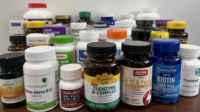
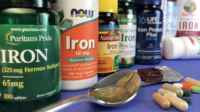
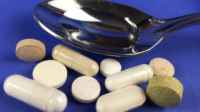
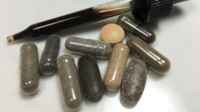
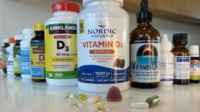
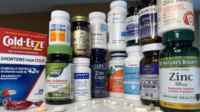
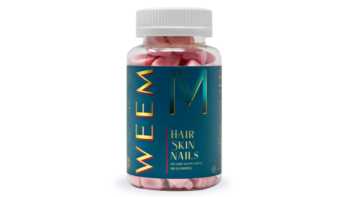
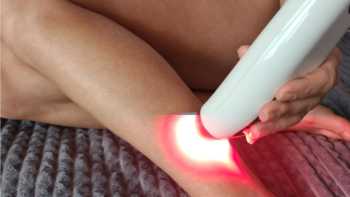





Submit your comment
This feature is restricted to active members.
Join now to add comments and get all member benefits, including over 1,400 reviews.
Join NowAlready a member? Sign in here.